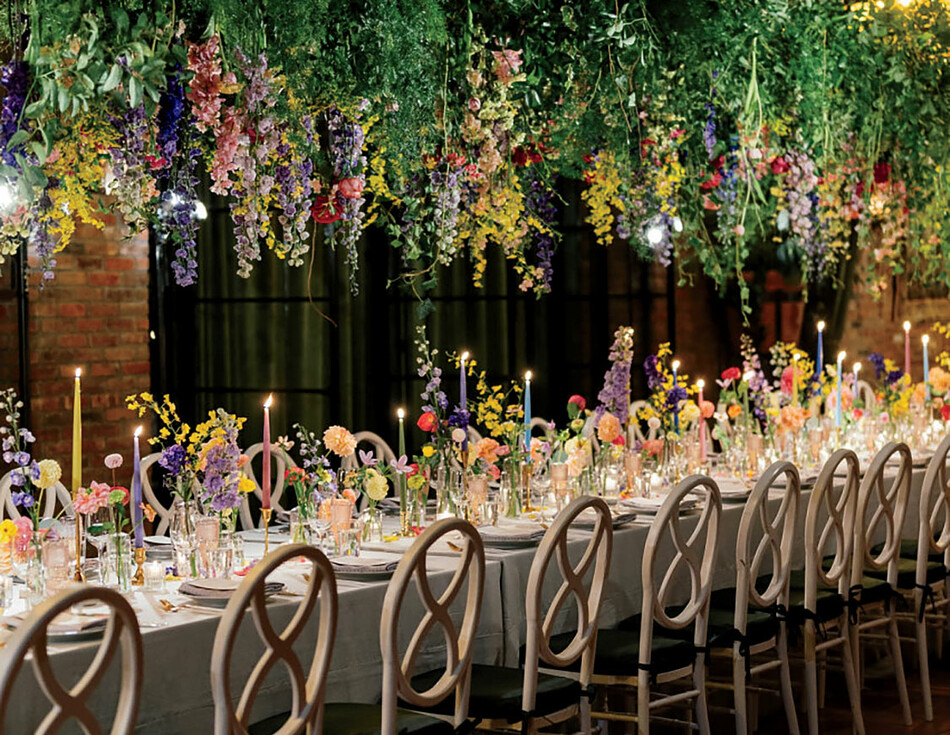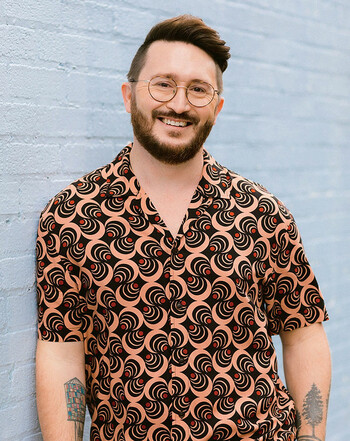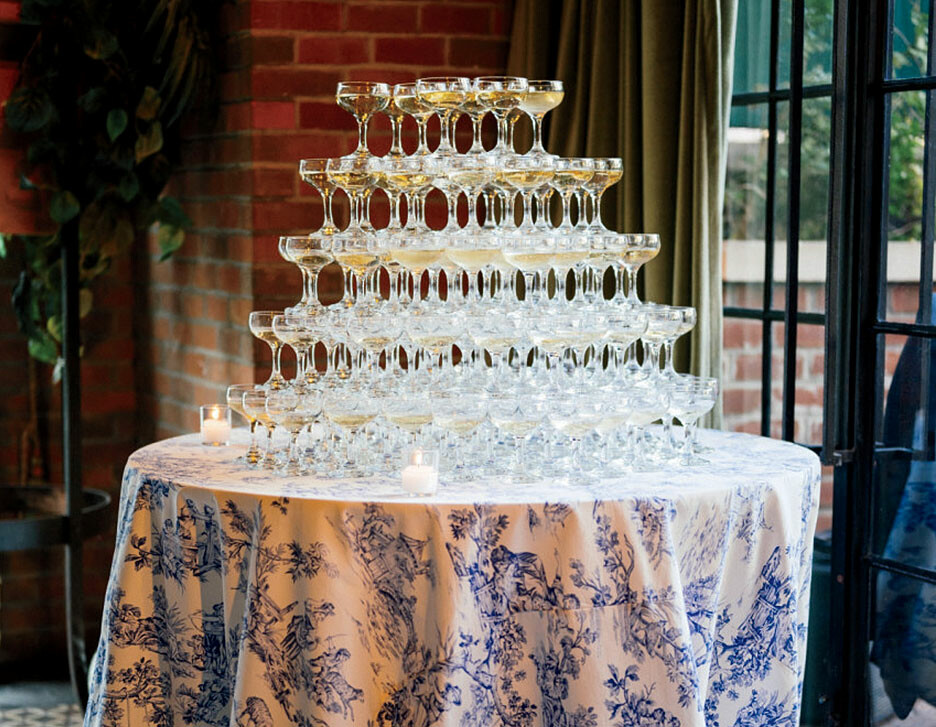Jove Meyer ’11GS stumbled into the wedding business in college, when a fellow Columbian asked him to help organize her big day. Since then, he’s become one of New York’s most sought-after wedding planners.
What exactly does a wedding planner do?
The better question is, what doesn’t a wedding planner do? It’s an all-encompassing job that a lot of people don’t understand. We wear so many hats, doing everything from sourcing vendors to managing emotions. We’re part project manager, part creative director, part therapist. One of my specialties is event design, which is not something that all wedding planners do.
My team and I start the process by scheduling a “date” with the couple: getting to know their love story as well as their preferences, budget, guest count, and expectations. We then reach out to anywhere from twelve to thirty vendors before sending a short list to the couple and helping them make decisions. After negotiating contracts — in a sense, we’re also part lawyer — we plan the timeline. There’s a skill set to creating the flow of a wedding: how the day should unfold and when the key moments happen. During the event, we manage the vendor, couple, and guest arrivals as well as the delivery, setup, and breakdown of all items and equipment.
You’ve been in this business since 2008. How has wedding culture changed since then?
It’s evolved dramatically. When I got started, marriage equality hadn’t yet passed, so it wasn’t legal for me to participate in the activity that I was providing for other people. In many ways, I think queer weddings have pushed the industry toward more authentic celebrations rather than a formula you should follow. The younger generation is reclaiming weddings, and they’re frequently less traditional. If the couple isn’t religious, they’re not getting married in a church. If they don’t want a cake, they won’t have one.
A lot of couples are also reevaluating the heteronormative and male-dominant culture of weddings: how the father walks the daughter down the aisle, dances with her, gives a speech. Not everyone has a father, and not every wedding has a daughter. I’ve seen couples bend those traditions in ways that are meaningful to them.
Which traditions do you feel are particularly passé, and what’s currently trending?
My clients haven’t done a garter toss in like fifteen years. We haven’t seen a bouquet toss in a very long time either. All-white color schemes are gone, including the assumption that wedding attire needs to be white. Formality is out and fun is in.
As for current trends, we’re seeing couples embrace more color and patterns, and people are really obsessed with bows at the moment. People are also obsessed with Italian vibes, from spritzes to espresso martinis to pasta courses to millefoglie cakes — I think the second season of The White Lotus has had a major influence.
What are some of the most unusual weddings you’ve planned?
If you’re looking for a nontraditional wedding, that’s where we thrive. We once did a Halloween masquerade wedding. We’ve also done a five-hundred-person music-festival-themed wedding with band after band and passed vegan food instead of a sit-down dinner. Another time, we did a Star Wars wedding where the couple and their wedding party all dressed up as characters. Their first “dance” was a choreographed lightsaber fight.
The term “wedding-industrial complex” is often used to describe the high costs of a wedding and the pressure to make it elaborate. Do you think that’s a fair criticism?
It’s tough. Once I was working with a client who was living in the land of “we need everything, and everything has to be perfect.” I was happy to provide all of that, but her mom sat us down and said, “I want to make sure we don’t lose focus that at the end of the day, this is about the love in the room.” That really stuck with me, because it can be easy to lose sight of the larger goal when you have the option to customize and upgrade every single component. Pinterest, TikTok, and Instagram have made the pressure worse. Before social media, you didn’t really know what was possible.
So I do understand the criticism. At the same time, because there are so many options for personalization, I think it’s a beautiful thing that if you want to source all-pink glassware because it makes you happy, someone can do that for you. Do any upgrades or design details guarantee a happy marriage? No, they do not. There is no correlation between how much money you spend on your wedding and the success of your marriage. But what I love about the industry is that so many niche artisans and creatives are able to get work because people have expanded their vocabulary and understanding of what a wedding can be. That’s exciting to me.





